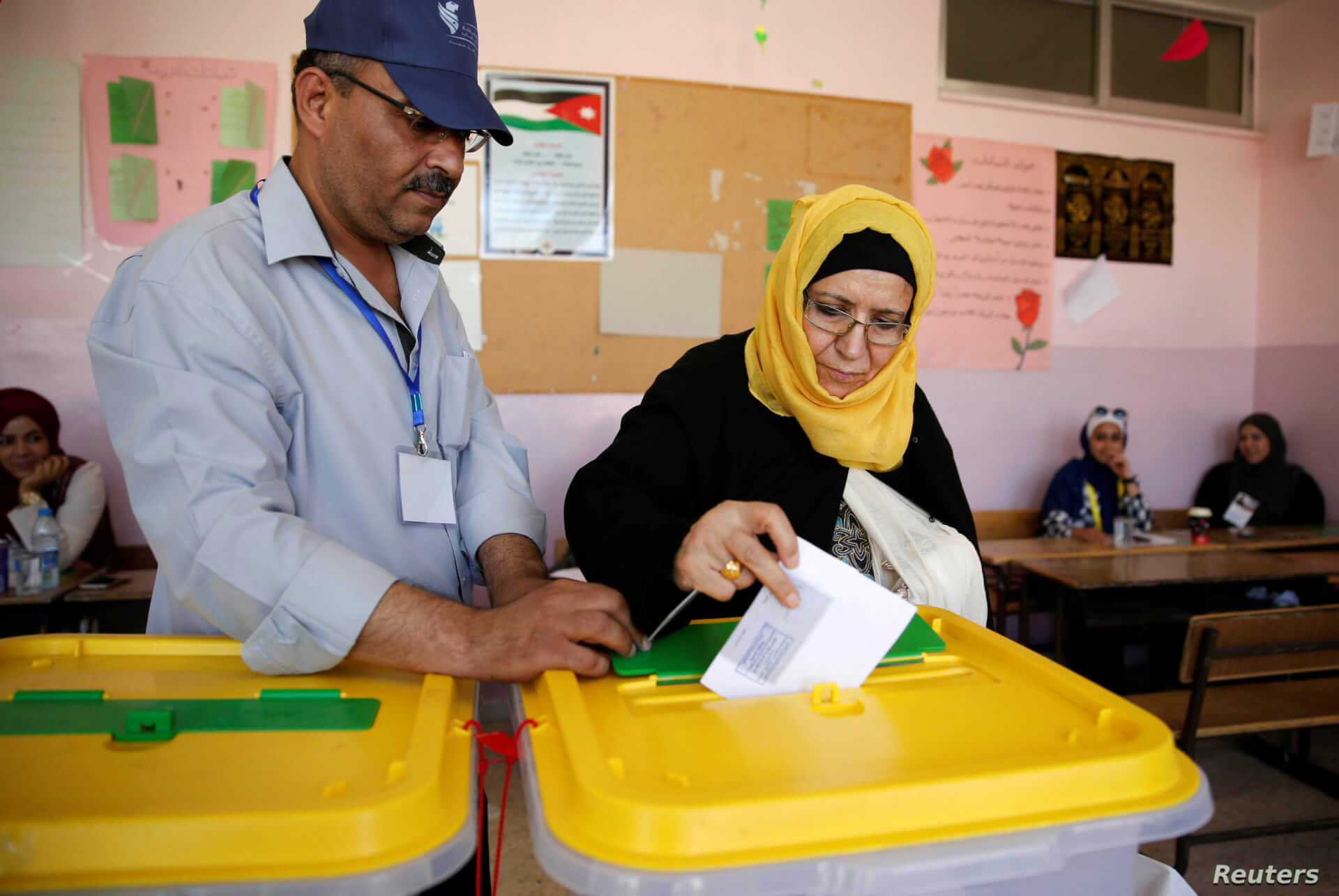On Tuesday, Jordan is set to begin its 23rd general election to elect a new parliament amid a deepening economic crisis that has only been worsened by the COVID-19 pandemic. Around 4.5 million people eligible to vote will cast their ballots to fill 130 seats in Parliament—15 of which are reserved for women—from a field of 1,674 candidates running on 294 lists.
The members of the newly elected Parliament’s immediate goal will be to reduce the country’s debt, which is estimated at more than 100% of its gross domestic product (GDP). Prior to the pandemic, Amman was already battling with a spiraling economic crisis that has only been exacerbated by the refugee crisis in the region at large.
According to the UNHCR, Jordan is home to some 2.2 million Palestinian refugees and more than 650,000 Syrian refugees. Jordan estimates the cost of hosting Syrian refugees at about $10bn, and regularly complains about a lack of international support. In 2018, in order to meet the country’s rising debt, the Jordanian government introduced new income taxes. The legislation, backed by the International Monetary Fund (IMF), would have increased taxes on citizens by at least 5% and on companies by between 20 and 40%. However, huge crowds of people protested against the proposed tax hike for several days, demanding that the government drop the proposed reforms.
With widespread anger across Amman, King Abdulla II was forced to remove Hazi Mulki as the Prime Minister and dissolve his cabinet in June 2018. Meanwhile, as protests continued, the king appointed Omar Razzaz as the new Prime Minister to subdue the political turmoil. After coming in power, Razzaz was tasked with restoring political stability and facilitating economic stability. Under the Razzaz administration, Jordan experienced a 2 % GDP growth in 2018 and 2.2% in 2019. However, despite the positive GDP growth, his cabinet was constantly criticised for failing to fight corruption and improve public services.
Therefore, in late September, King Abdulla II dissolved the Parliament and appointed veteran diplomat Bisher Al Khasawneh as the new Prime Minister, entrusting him with handling the nation’s coronavirus crisis until the election of a new parliamentary cabinet. According to the constitution, new elections are to be held within the four months of dissolution, which explains why Jordan is holding general elections on Tuesday in spite of a lack of popular support.
Local participation in the general elections is expected to be significantly low, in large part due to the coronavirus pandemic. In fact, campaigning has been restricted to online social media platforms such as Facebook in order to maintain social-distancing. However, while there have been some calls on social media to postpone the elections, the government has said that the vote will go ahead as planned. Aside from the pandemic, there is a general lack of hope that the newly elected Parliament will be able to implement the changes required due to its highly marginal role in the country’s political system, which is expected to further contribute to low voter turnout.
Jordan is a constitutional monarchy with a parliamentary monarchy framework, wherein the Prime Minister of Jordan is the head of government. Constitutionally, most powers rest with the king, who appoints government officials and can suspend or dissolve Parliament according to his will. The legislative power lies with the bicameral National Assembly, which is made up of two chambers: the Chamber of Deputies ( Majlis al-Nuwaab), who are elected by the people, and the Assembly of Senators (Majlis al-Aayan), who are appointed by the King.
Aside from the independent candidates, the remaining candidates belong to either The Islamic Action Front, which is an offshoot of the Muslim Brotherhood, or the Progressive List, a coalition of socialist and nationalist parties. Given the current pandemic, their campaigns are largely focused on economic recovery and public health.
The importance of economic recovery is underscored by the fact that the country’s already weak economy has been dealt another severe blow by the ongoing pandemic. Home to some of the world’s finest archaeological sites, including Petra’s ancient city, tourism typically accounts for 14% of Jordan’s GDP. Therefore, amidst worldwide travel restrictions, Jordan’s tourism and hospitality industries have been hard-hit, with some $3bn lost during the first nine months of 2020. Furthermore, the unemployment rate increased from 19% in 2019 to 23% in 2020.
In order to help Jordan come out of the economic crisis, in March 2020, the IMF approved $1.3bn in aid for Jordan, subsequently adding about $396m in emergency funds to soften the impact of COVID-19. However, the situation remains bleak, as a part of these funds will be used to conduct the general elections, rather than pay the country’s debt or deal with rising unemployment.
Jordan to Elect New Parliament Amid Deepening Economic Crisis
Despite several calls to postpone what is seen as a threat to public health, Jordan is set to conduct general elections on Tuesday.
November 10, 2020

SOURCE: Reuters
